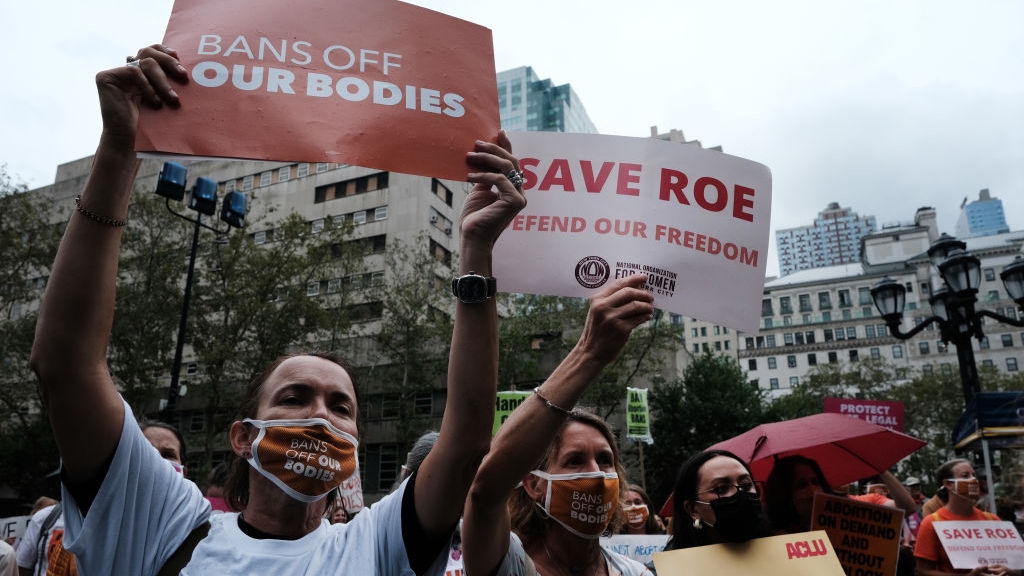If the goal of Texas’ new abortion ban was to enrage enough people to actually increase support for abortion in America, then congratulations, Texas—you’ve done it! In what was undoubtedly an unintended consequence of Lone Star State lawmakers deciding they had the power to overturn the 1973 Supreme Court ruling on Roe v. Wade, and a woman’s federal right to health care—which, yes, includes abortion—Forbes is reporting that support for abortion being legal across America might actually be on the rise.
According to the numbers in a new Quinnipiac poll, which was conducted between September 10 and September 13 with 1,210 U.S. adults responding, a record-high 31 percent of respondents said that abortion should be legal in all cases while another 31 percent support abortion in most cases. According to Forbes, “Quinnipiac notes that’s ‘one of the highest levels of support’ for abortion since the pollster began asking the question in 2004, and marks the first time more than 30 percent [of respondents] have said it should be legal in all cases.”
While 51 percent of the people polled were ok with abortion procedures happening after a “fetal heartbeat” is detected, which is right around six weeks and part of how Texas came up with the terms of its new abortion ban (despite the fact that many women wouldn’t even realize they were pregnant at this point), a whopping 83 percent of respondents were in favor of abortion in the event that a pregnancy is the result of rape or incest, which is not something Texas’ new law cares to consider.
Perhaps even more surprising is the impact Texas’ ban, which flies in the face of federal law, has had on support for the Supreme Court. “Only 37 percent of respondents approve of the Supreme Court while 49 percent disapprove,” Forbes writes, “which Quinnipiac notes is the lowest approval rating since it started polling in 2004 and is down from a 52 percent approval rating in July 2020.”
On Tuesday evening, the Department of Justice filed an emergency motion to block Texas’ abortion ban, which makes the medical procedure illegal—no matter the circumstances—after six weeks. In their filing, according to Axios, the DOJ cites: “This relief is necessary to protect the constitutional rights of women in Texas and the sovereign interest of the United States in ensuring that its States respect the terms of the national compact. It is also necessary to protect federal agencies, employees, and contractors whose lawful actions S.B. 8 purports to prohibit.”
Even more troubling, according to the filing (which you can read in full here) is that Texas’ ban goes completely against the 14th Amendment, which reads: “No state shall make or enforce any law which shall abridge the privileges or immunities of citizens of the United States; nor shall any state deprive any person of life, liberty, or property, without due process of law; nor deny to any person within its jurisdiction the equal protection of the laws.”
Attorney general Merrick Garland also cited the 14th Amendment in his argument against the ban, claiming that the ban is “invalid under the Supremacy Clause and the 14th Amendment, is preempted by federal law, and violates the doctrine of intergovernmental immunity.”
(Via Forbes)

